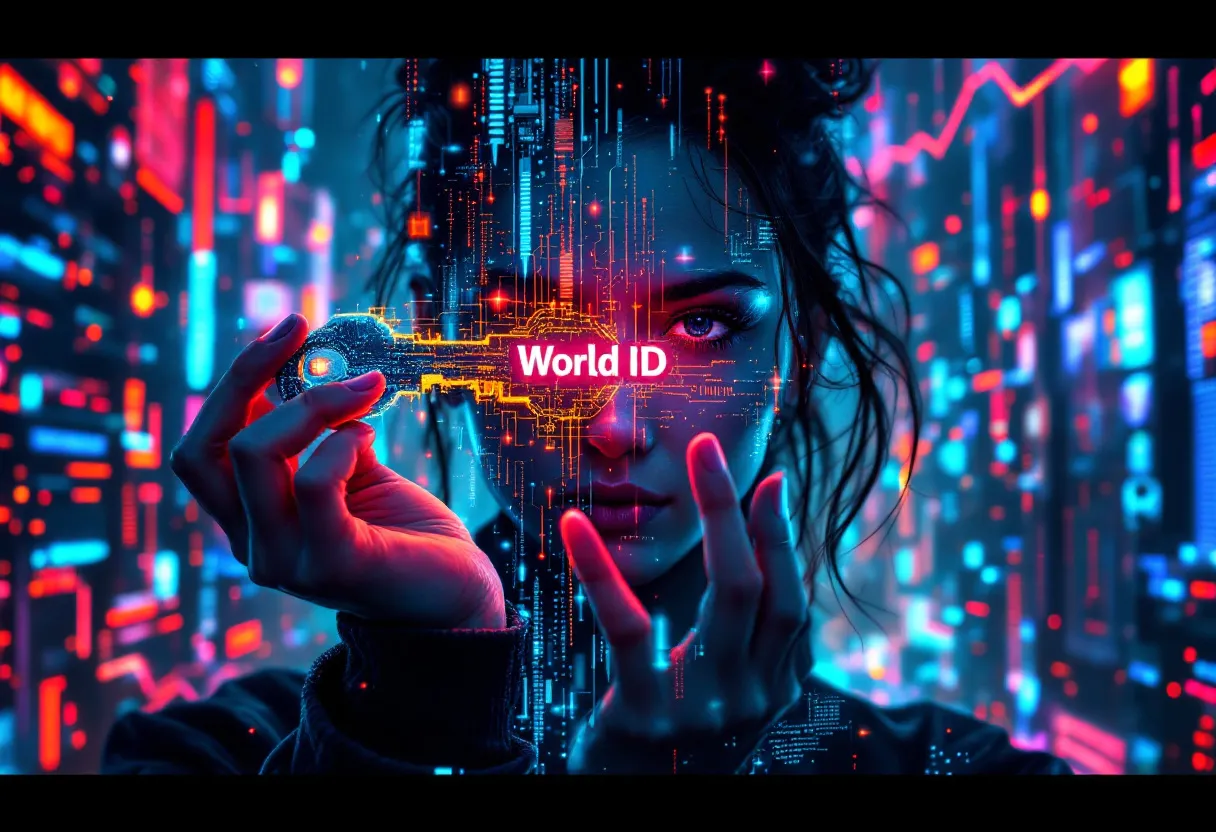
The distinction between human and AI is becoming blurrier every day and generative AI tools are ever easier to get to grips with and ever more powerful. These tools and techniques can already imitate human voice and behavior to perfection. Today, the need to prove one’s humanity online (PoH – Proof of humanity) has become a major issue. It was against this backdrop that Sam Altman, founder of OpenAI launched Worldcoin, (now known as World).
Word presents itself as a pioneer in digital security and privacy, offering a framework for identifying individuals without compromising their anonymity.
Listen to the Ai podcast :
What is World ID?
World ID is a digital identification system developed to allow users to prove that they are unique human beings.
Its principle is based on identity verification by a device called Orb, which scans the user’s iris.
This biometric verification creates a record on a blockchain, ensuring that everyone’s identity remains authentic and unforgeable.
The importance of World ID lies in its ability to bridge the gap between humanity and AI. By offering a secure means of authentication, it also paves the way for new applications in diverse fields ranging from social networks to online voting systems, via access to government services.
Distinction between World and World ID
World represents the system as a whole, encompassing all aspects of digital identification, including the Orb, the network, the World App and privacy protocols.
On the other hand, World ID is the specific component that certifies that a user is a unique human being.
The Orb and identity verification
Designed specifically for security, this device makes it possible to verify user identity quickly and reliably.
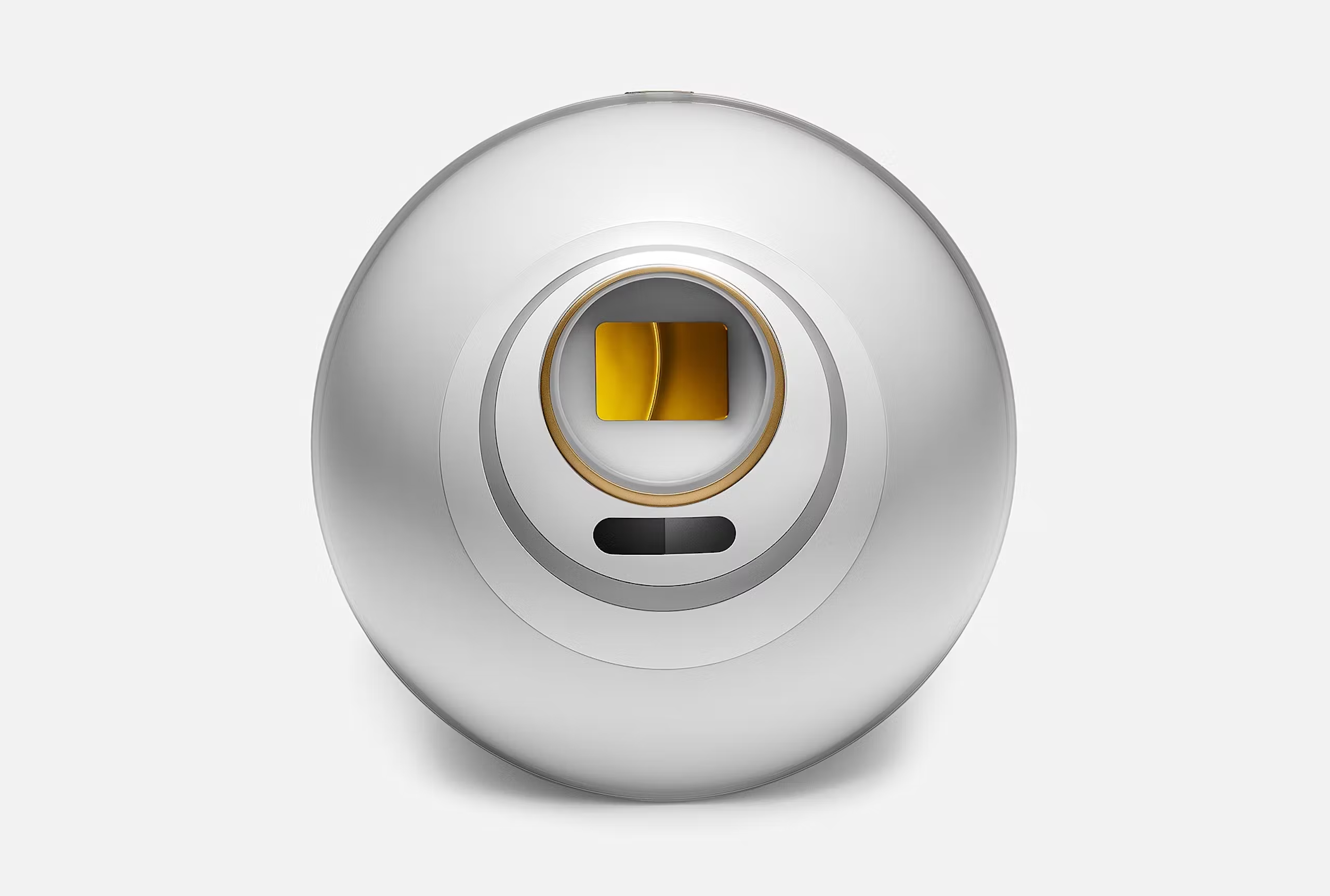
It has been designed to be robust against fraud, incorporating advanced security measures to ensure that only those who have gone through the verification process can access a World ID.
The technology employed by Orb includes the encryption of all biometric data, securely stored on the blockchain.
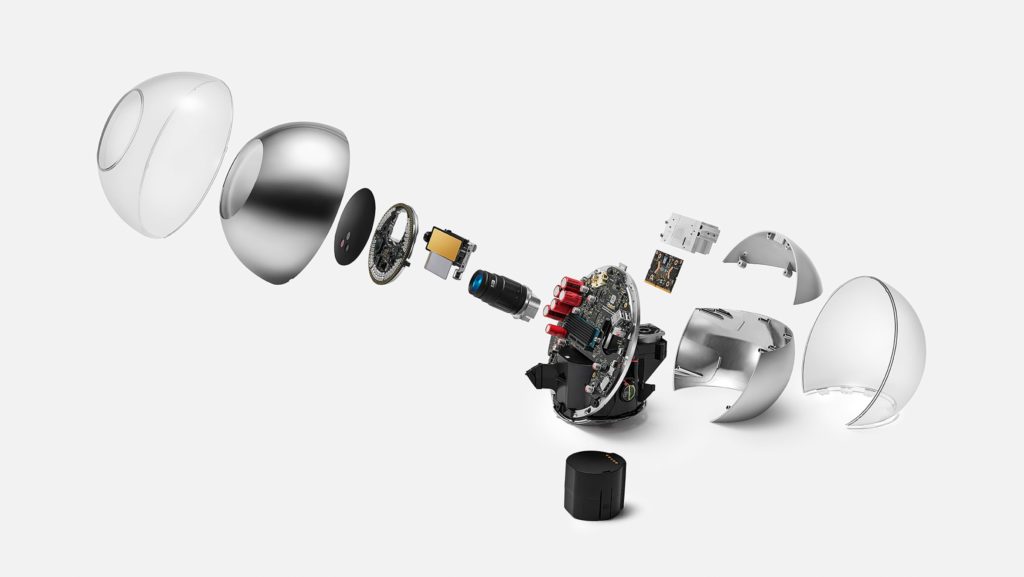
Once the verification process is complete, Orb retains only a digital fingerprint of the identity, avoiding the storage of sensitive data.
Face Auth: an additional layer of security
World has also introduced the Face Auth feature, which enforces the integrity of the identification system.
With Face Auth, the user takes a selfie, which is then compared with the iris image recorded during the initial verification.
This comparison is done locally on the user’s device, ensuring that personal data never leaves the user’s control.
With this approach, Face Auth offers double protection, not only verifying the user’s identity when accessing his or her account, but also preventing any form of identity theft, which is of paramount importance for online transactions or financial operations.
Privacy at World
World makes a point of ensuring the confidentiality of personal information during identity verification by various means:
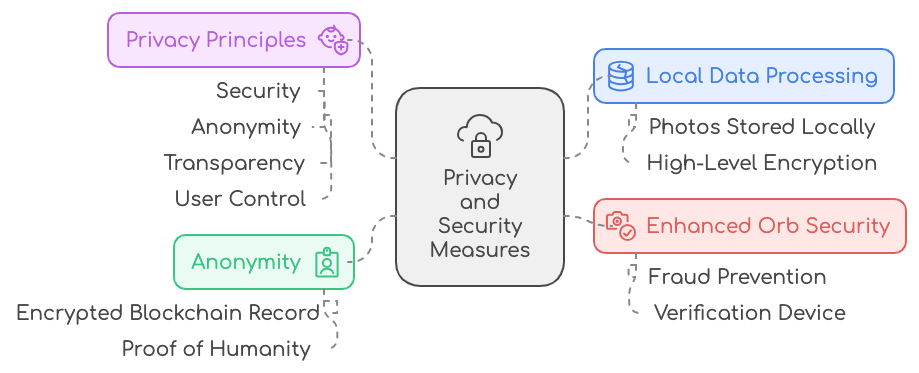
- Local data processing: Photos are never sent to an external server and are only stored on the user’s phone, with high-level encryption.
- Enhanced Orb security: This device, used for verification, is designed specifically to prevent fraud attempts.
- Anonymity: Our identity is not stored; only an encrypted record on the blockchain is created, enabling proof of humanity without sacrificing privacy.
- Privacy principles: This encompasses security, anonymity, transparency, as well as the choice and control that lie with the user.
Future applications for World ID
Strengthening online trust
With World ID, users can interact on online platforms with confidence in the real identity of their interlocutors. This will channel a safer digital scene.
Fighting fraud and abuse
By preventing the creation of fake profiles and verifying every interaction, World ID could be a valuable asset in areas such as online commerce and electronic voting.
Easier access to services
For people without access to traditional identities, World ID can open doors to services that were previously inaccessible to them, such as bank accounts or credit.
Governance innovations
A digital identification system like World ID could transform the way governments or organizations are run, promoting more transparent voting systems.
Conclusion
The issues surrounding the validation of human identity are more topical than ever. How will these technologies evolve in the future, and how will they maintain a balance between security and privacy in the face of the growing challenges of artificial intelligence?
Related Articles
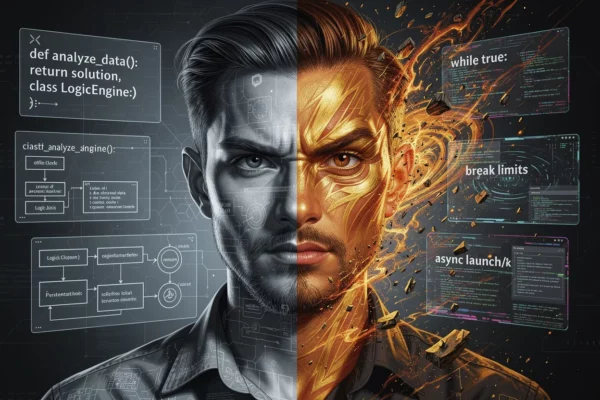
Claude Code vs antigravity: A Complete Comparison of AI Assistants for Developers 2026
Two philosophies are clashing in the realm of AI assistants for developers in 2026. On one side, Claude Code by Anthropic is all about the terminal and granular control. On…

WordPress, Headless or Custom AI: Which CMS Should You Choose in 2026?
For 20 years, the answer was simple: WordPress. In 2026, the landscape has radically changed. Headless CMS, custom AI backends, autonomous agents… This guide will help you make the right…
